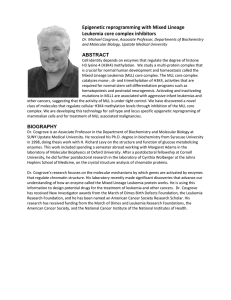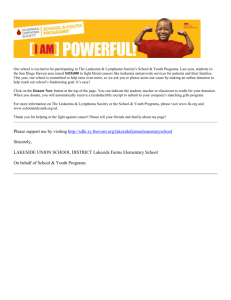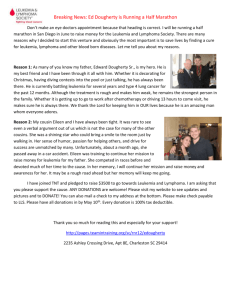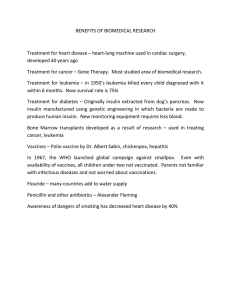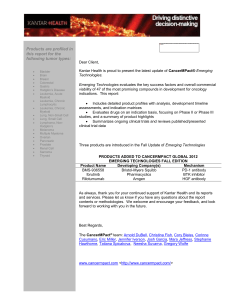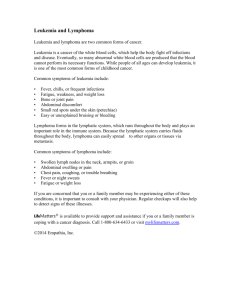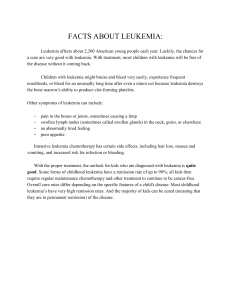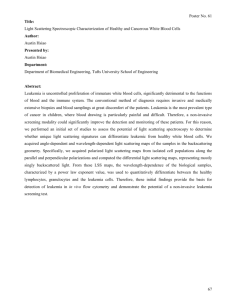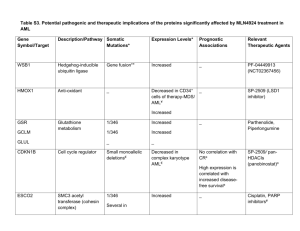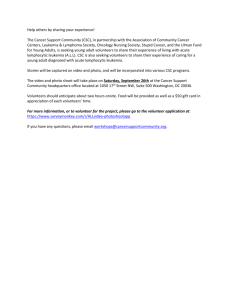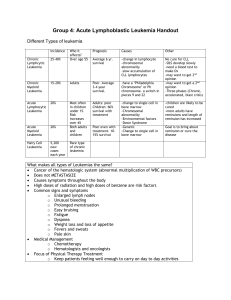Andrew Volk
advertisement
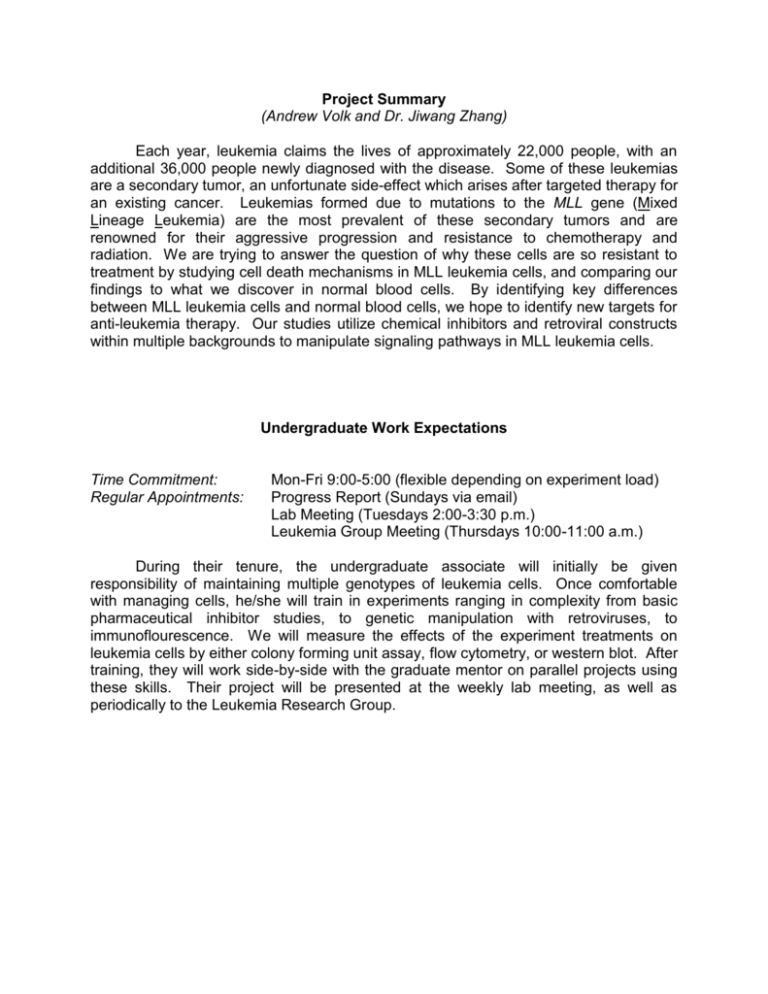
Project Summary (Andrew Volk and Dr. Jiwang Zhang) Each year, leukemia claims the lives of approximately 22,000 people, with an additional 36,000 people newly diagnosed with the disease. Some of these leukemias are a secondary tumor, an unfortunate side-effect which arises after targeted therapy for an existing cancer. Leukemias formed due to mutations to the MLL gene (Mixed Lineage Leukemia) are the most prevalent of these secondary tumors and are renowned for their aggressive progression and resistance to chemotherapy and radiation. We are trying to answer the question of why these cells are so resistant to treatment by studying cell death mechanisms in MLL leukemia cells, and comparing our findings to what we discover in normal blood cells. By identifying key differences between MLL leukemia cells and normal blood cells, we hope to identify new targets for anti-leukemia therapy. Our studies utilize chemical inhibitors and retroviral constructs within multiple backgrounds to manipulate signaling pathways in MLL leukemia cells. Undergraduate Work Expectations Time Commitment: Regular Appointments: Mon-Fri 9:00-5:00 (flexible depending on experiment load) Progress Report (Sundays via email) Lab Meeting (Tuesdays 2:00-3:30 p.m.) Leukemia Group Meeting (Thursdays 10:00-11:00 a.m.) During their tenure, the undergraduate associate will initially be given responsibility of maintaining multiple genotypes of leukemia cells. Once comfortable with managing cells, he/she will train in experiments ranging in complexity from basic pharmaceutical inhibitor studies, to genetic manipulation with retroviruses, to immunoflourescence. We will measure the effects of the experiment treatments on leukemia cells by either colony forming unit assay, flow cytometry, or western blot. After training, they will work side-by-side with the graduate mentor on parallel projects using these skills. Their project will be presented at the weekly lab meeting, as well as periodically to the Leukemia Research Group.
